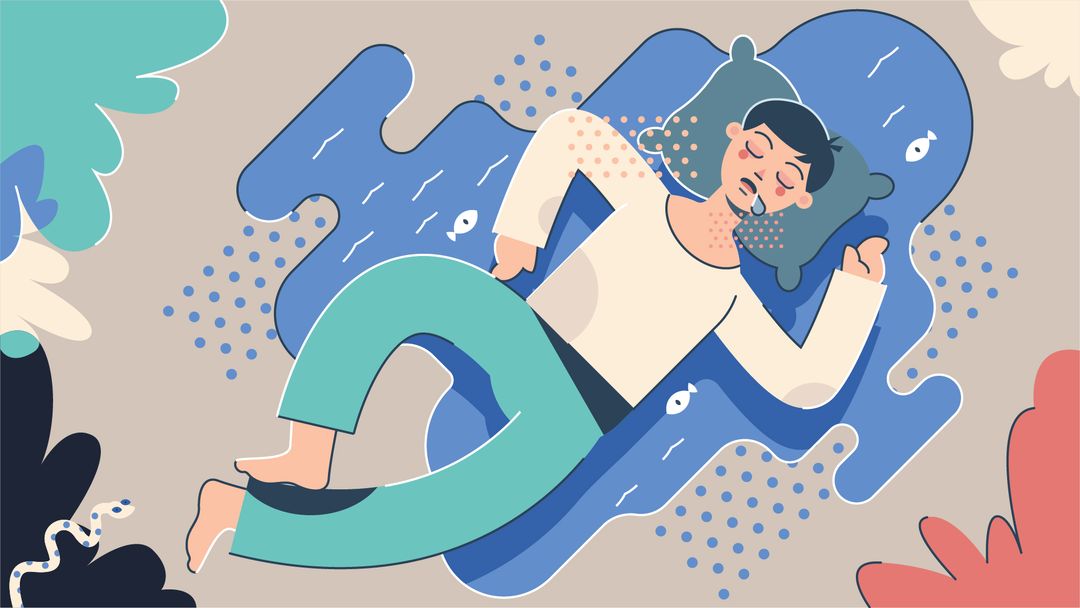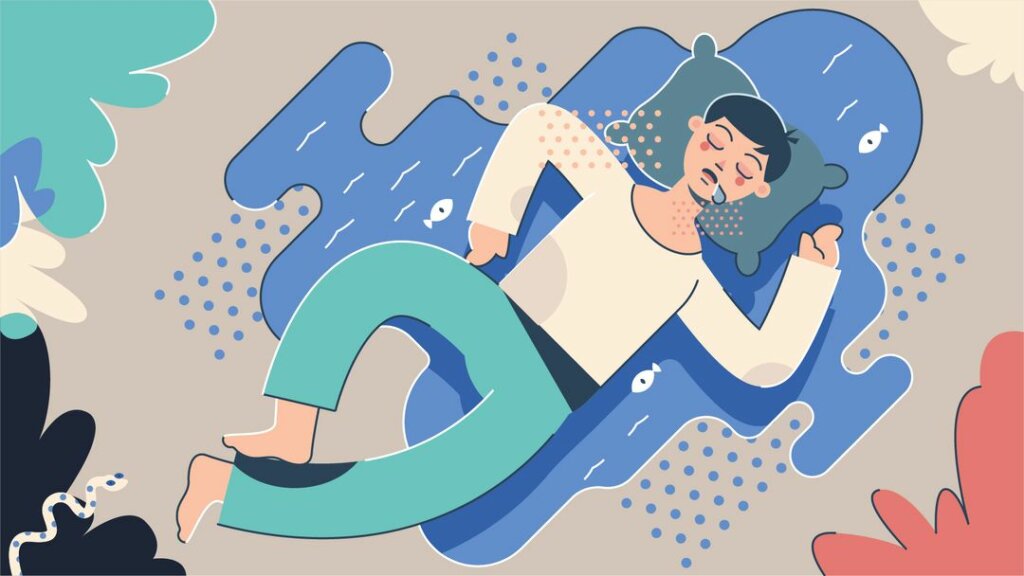If you told someone that your three year-old has a habit of wetting the bed, no one will bat an eye. Why? It’s absolutely normal for young kids not to have full control of their bladder when sleeping.
Now, if you told them your spouse or partner does the same thing, however, you can be sure your conversation will take on an entirely different tone altogether. Bed-wetting sleep disorder can be pretty embarrassing, especially as you enter adolescence and adulthood. In most cases, adults wetting the bed is a sign of an underlying condition or medical troubles.
Here, we look at adult bed-wetting or adult nocturnal enuresis, along with its symptoms, probable causes, and recommendations for managing it.
Can’t sleep and don’t know why? Check out our Complete Guide to Sleep Disorders with symptoms, causes, and treatments on over twenty types of sleep disorders.
Quick Facts – Adult Bed-wetting
Frequency: 1-2%* of the global population
Risk Factors: Underlying urological conditions, genetics and/or family history, stress and anxiety, hormonal imbalance
Nature: Physical
Treatment: Medication, behavioral modification, surgery
Symptoms – Adult Bed-wetting
Most cases of adult nocturnal enuresis have no other symptoms aside from the patient involuntarily wetting the bed while sleeping. Below is a list of some of the reported and commonly observed behaviors among those who have sleep enuresis.
- Night sweats
- Involuntary peeing while asleep
- Pain while peeing during the day
- Unusual or increased feelings of thirst
- Urine discoloration (pink or red) and hard stools
Causes – Adult Bed-wetting
Based on studies, several factors can contribute to the development of adult bed-wetting. Specialists typically need to determine if the sleep enuresis occurs on its own, or if it is symptomatic of underlying medical conditions like bladder issues, diabetes, hormonal imbalance, or other sleep-related disorders.
Below is a list of some factors that have been linked to the increased likelihood of adult nocturnal enuresis.
- Family history – Per the Alaska Sleep Clinic, one of the first things to study in cases of adult bed-wetting is if the patient’s family has a history of urinary incontinence.
- Hormonal imbalance – Antidiuretic hormone (ADH) is what signals the kidney to produce less urine. Our body usually produces more ADH at night so we don’t pee in our sleep. In some people, however, either not enough ADH is produced, or the kidney stops responding and doesn’t get the signal to decrease urine production.
- Stress and/or anxiety
- Bladder-related conditions – Certain conditions, like having a small bladder or overactive detrusor (bladder) muscles, can lead to nocturnal enuresis. According to the National Association for Continence, 70-80% of patients with this disorder also have overactive bladder muscles.
- Urinary tract infection (UTI)
- Excessive fluid intake at night or near bedtime
Treatment – Adult Bed-wetting
According to research, in most cases, you can manage or eliminate the symptoms of adult bed-wetting by addressing the underlying conditions causing them. Here are some ways you can help curb or manage adult nocturnal enuresis.
- Medication – Prescribed medication can treat any underlying causes for this condition. Antibiotics address urinary tract infections, anticholinergic drugs target bladder irritations, desmopressin acetate helps lessen urine production at night, and imipramine relaxes bladder muscles.
- Lifestyle and behavioral modifications – This includes limiting your fluid intake at night, pre-empting bed-wetting by setting alarms at night to awaken the patient for urination, using waterproof or absorbent mattress covers, and emptying the bladder before going to bed (even if you don’t feel like going).
- Surgery – If all the above treatment methods are ineffective, surgery may be the best option for adult nocturnal enuresis. Detrusor myectomy (removing part of the bladder’s exterior muscle) and clam cystoplasty (enlarging the bladder by cutting it open and putting a patch of intestine between the two halves).
How You Will Overcome Adult Bed-wetting
According to UCLA Health, setting “bed-wetting alarms” proves the most effective method of managing adult bed-wetting—especially if the patient or the family prefers a natural, non-pharmacological solution. This means your first recourse isn’t even drugs: it is simple behavioral modification and sleeping habit adjustments.
Fortunately, adult nocturnal enuresis is not a life-threatening condition. It’s annoying and uncomfortable and embarrassing at best. Since it is completely manageable, however, there’s no need for you, your partner, or your loved partner to worry or suffer. What’s important is to first make sure that the bed-wetting is not a symptom of another condition.
Once that part is all cleared, you can easily keep adult bed-wetting under control with optimal lifestyle adjustments (like restricting fluid intake and setting bed-wetting alarms). Here’s to sleeping deeply, soundly, and comfortably dry!
Did you know?
This article is part of our Complete Guide to Sleep Disorders – A resource that will help you get your quality sleep back. Click here to learn more about sleep disorders, their causes, symptoms and how to overcome them.



